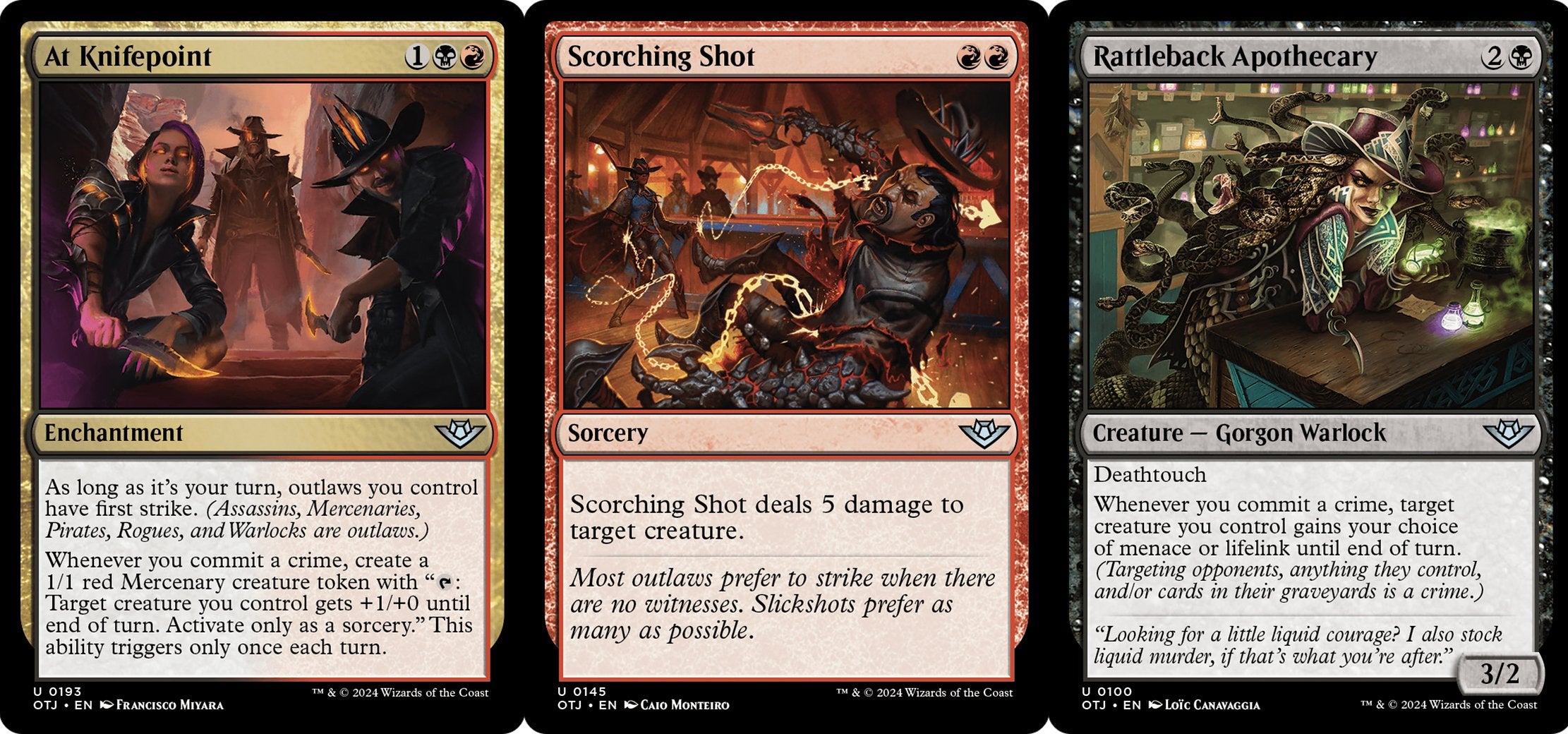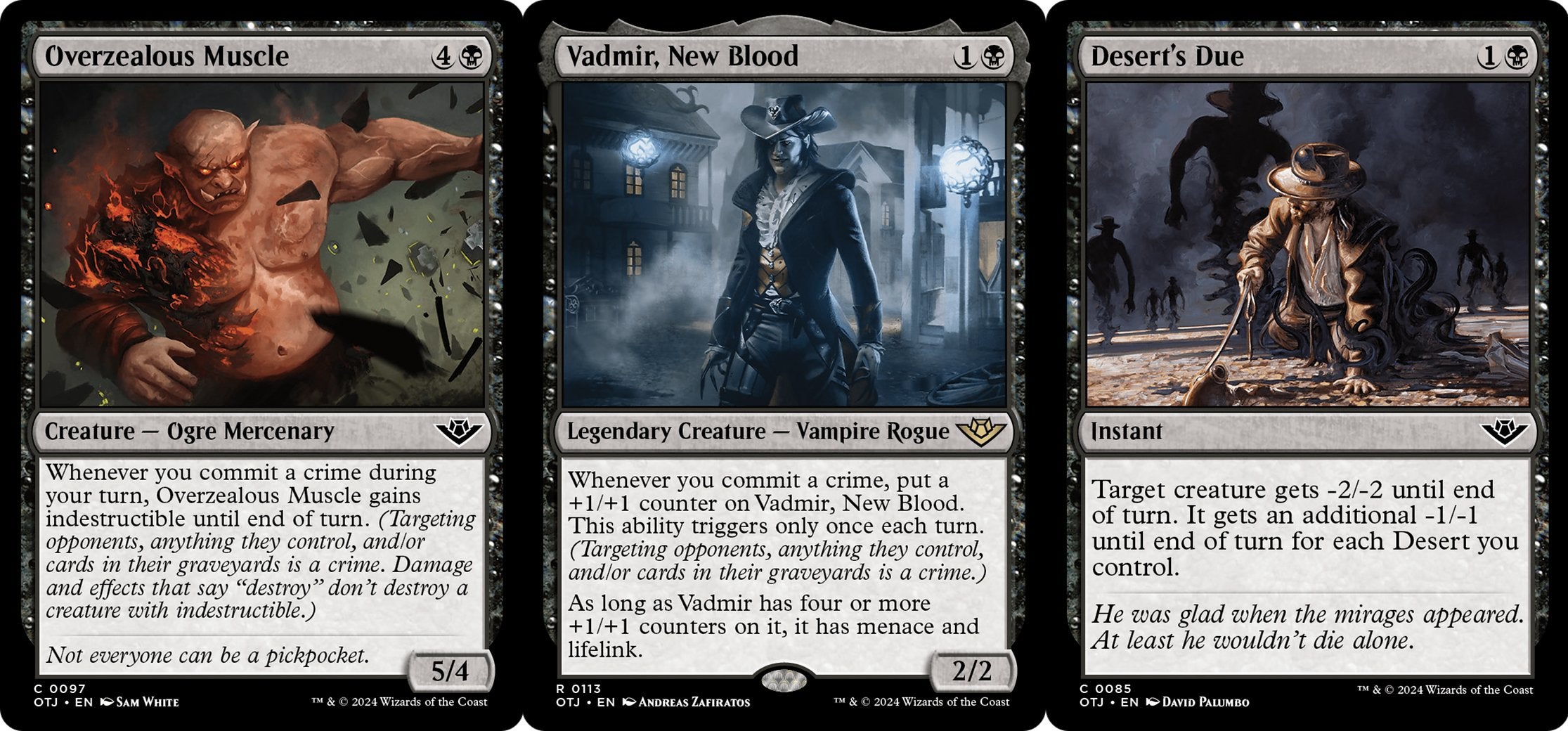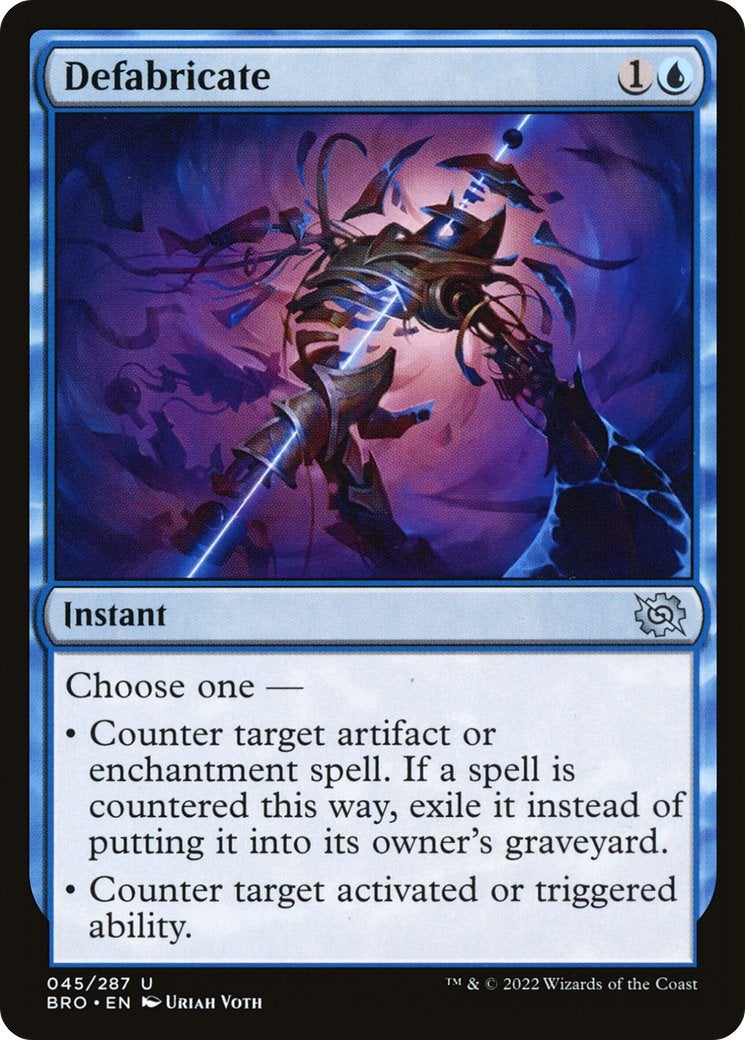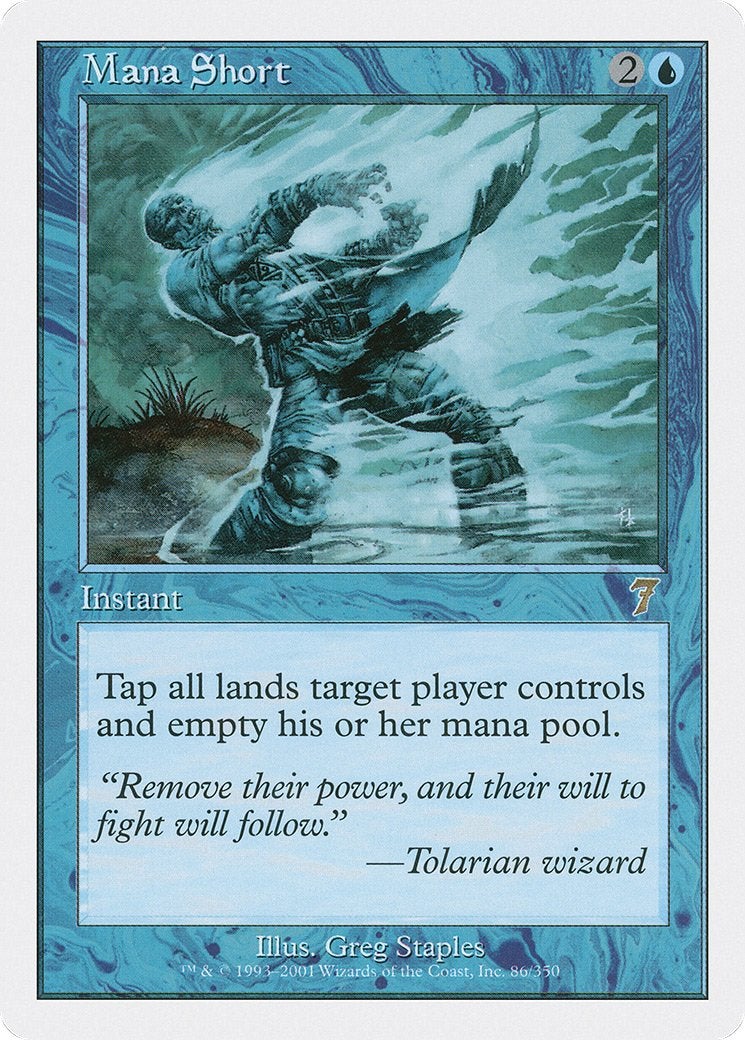![]() Key Takeaway
Key Takeaway
Committing a Crime in MTG involves targeting an opponent or one of their spells. Once a targeting effect is put on The Stack, it’s a Crime. The spell effect or ability needs to have the text “target” in it to be a Crime.
Before you get all hyped to rob a bank, you should know that there are many easier ways to commit a Crime in MTG. To make use of this mechanic in Magic: The Gathering, all you need to do is set your eyes on your opponent’s possessions…
Table Of Contents
What Is Committing a Crime in MTG?
Committing a Crime in MTG involves targeting an opponent or one of their spells. Specifically, this means picking your opponent or one of their spells (on the battlefield or in your opponent’s graveyard) as the target of one of your spells or abilities.
Furthermore, it doesn’t matter if your spell or ability that targets your opponent or one of their spells is countered. Once you activate and target something, that’s committing a Crime. As such, effects that trigger off of committing a Crime will activate regardless of the targeting spell or ability’s outcome. Put another way: once a targeting effect is put on The Stack, it’s a Crime.
However, merely affecting your opponent’s spells with an effect does not automatically mean it’s committing a Crime. The spell effect or ability needs to have the text “target” in it to be a Crime.
On top of that, Crime-triggered abilities can only activate once per Crime committed—even if said Crime affects multiple targets. This is because selecting multiple targets occurs at the same time; meaning the act of targeting only happens once. However, you can chain Crime-triggered abilities together by activating multiple targeting effects back-to-back.
An Example of How Committing a Crime Works
Let’s say you’ve got At Knifepoint and Rattleback Apothecary on your side of the battlefield. If you cast Scorching Shot and target an opponent’s Creature, you’ll activate the Crime-triggered abilities of both At Knifepoint and Rattleback Apothecary.
This means you create a 1/1 red Mercenary Creature Token (At Knifepoint’s effect) and give one Creature you control Menace or Lifelink for the rest of the turn (Rattleback Apothecary’s effect).

Now, let’s say you have another Scorching Shot in your hand. When you cast this second Scorching Shot, At Knifepoint’s Crime-triggered ability won’t activate—but Rattleback Apothercary’s will. This is due to At Knifepoint having a hard “once each turn” limiter on its Crime-triggered ability, whereas Rattleback Apothecary does not.
How to Commit a Crime Effectively in MTG
The best way to use the Crime mechanic in MTG is to get many Permanents on the battlefield that have Crime-triggered abilities. Afterward, begin targeting your opponent and their cards with spell effects and abilities. The more potential Crime-triggered abilities you have on the battlefield, the better. This lets you efficiently activate a bunch of them at once to overwhelm and confuse your opponent.
For instance, if you have Overzealous Muscle on the battlefield and Vadmir, New Blood as well as Desert’s Due in your hand, the most efficient play is to get the Vadmir, New Blood onto the battlefield before casting Desert’s Due. That way, you activate both Overzealous Muscle’s and Vadmir, New Blood’s Crime-triggered abilities at once when you cast Desert’s Due.

Ideally, in this specific scenario, it would be best to cast Desert’s Due after your opponent declares a block on an attacking Overzealous Muscle. Target the blocking Creature to decrease its power and toughness while giving Overzealous Muscle Indestructible. At the same time, you give Vadmir, New Blood a +1/+1 counter. Three more Crimes (on subsequent turns) and Vadmir, New Blood gets Menace and Lifelink.
How to Stop an Opponent From Committing a Crime in MTG
The best way to stop an opponent from committing a Crime in MTG is to counter the Crime-triggered ability directly. To do so, you’ll need spells that specifically counter abilities, such as Defabricate. Keep in mind that such spells can only counter one ability at a time. Therefore, if your opponent triggers multiple Crime abilities, you’ll need to choose one to counter.

However, you can also stop your opponent from committing a Crime in MTG by depriving them of mana. There’s no point countering a spell’s effect or ability to prevent the activation of a Crime-triggered ability, as said ability activates and resolves the moment the targeting spell or ability is placed on The Stack. You can use spells like Mana Short to rid an opponent of mana—although this and similar “mana burn” cards are illegal in many formats.

To become the most infamous outlaw around, you’ll need to become proficient at committing Crime often in MTG. While you’re at it, why not go on a literal crime spree by using the Spree mechanic? The local sheriff will never see it coming…


